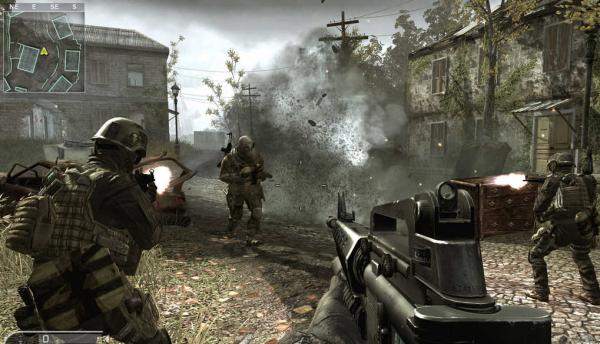Yet another hysterical survey has tipped up in a supposedly prominent psychology magazine, the Psychological Bulletin, claiming yet again that playing violent video games leads to violent thoughts and doesn’t promote “positive social behaviors.”
Trouble is, the survey is not actually based on any original research, instead relying on certain selected “existing studies of 130,000 people from the U.S., Europe and Japan.”

So basically, esteemed psychologist Craig Anderson of Iowa State University used his grant money to compile a selective list of other people’s data, manipulate it to support his own hypothesis, slapped on a conclusion and called it a day.
Sounds academic.
The accumulated knowledge amassed by Anderson and his research assistant minions purportedly points to the conclusion that being exposed to violent video games leads to *yawn* aggressive behavior, *sigh* aggressive cognition and *you gotta be kidding me* aggressive “affect.”
But despite the fact the American Psychological Association, which owns Psychological Bulletin, thinks Mr. Anderson is hot stuff, other academics have come out of the woodwork to offer a resounding and incredulous “Pffffff….!”
The Washington Post reports that two researchers from the department of behavioral applied science and criminal justice at Texas A&M International University – Christopher Ferguson and John Kilburn – have highlighted Anderson’s selection bias.
They also point out that Anderson found only the flimsiest of connections between violent video gaming and violent thoughts and actions. Which seems pretty obvious to us, seeing as most kids out there today are not raging psychopaths.
Ferguson even goes as far as saying that the US, and other first world countries where kids have long neglected the great outdoors for a life of pasty bedroom existence in front of a console, has even seen a decline in violent crime.
Put that in your pipe and smoke it, Anderson.
Meanwhile, gaming dad and industry expert, Brian Ambrozy of Icrontic, told TG Daily he questioned Anderson’s purpose for writing the “study” in the first place.
“Just another self-important Ph.D with unknown motives (selling books? religion? a tiny schlong?) doing bad research to get big headlines,” he told us.
“I’m not going to dignify it by calling it “research” because he didn’t actually do the research,” he added.
Indeed, if Anderson had bothered doing some research, like Drs. Cheryl K. Olson and Lawrence Kutner of the Harvard Medical School Center for Mental Health and Media before him, he might have discovered as they did in their analysis, Grand Theft Childhood, that any ridiculous links between virtual and real world violence were “drawn from bad or irrelevant research, muddleheaded thinking and unfounded, simplistic news reports.”
Here, here. Game over, Anderson.






